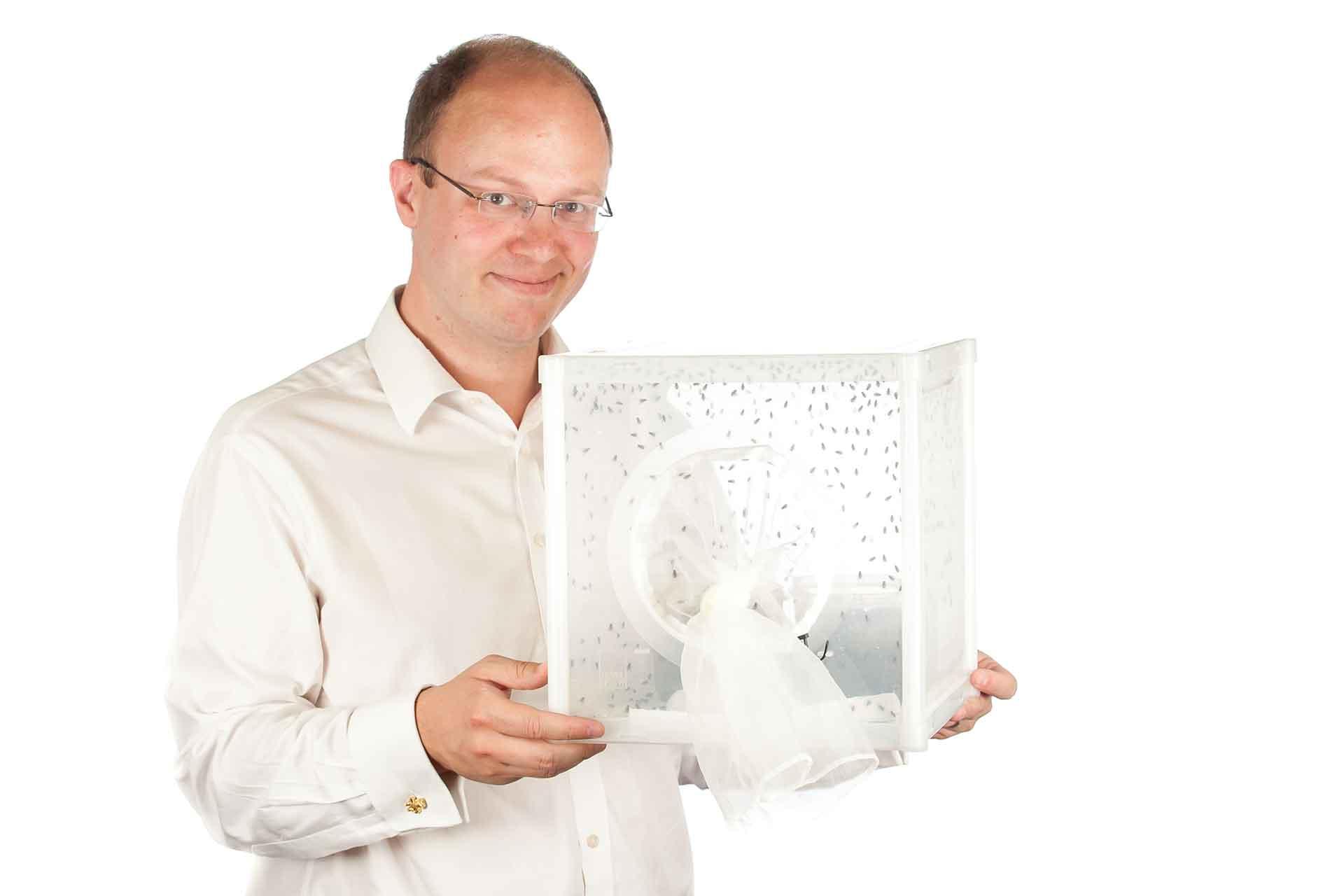The American Association for the Advancement of Science (AAAS) has selected a senior scientist at The Pirbright Institute as a 2017-2018 AAAS Alan I. Leshner Leadership Institute Public Engagement Fellow.
Dr Anthony Wilson, Group Leader for Integrative Entomology (the study of insects) at Pirbright, was chosen from a large number of international applicants together with 14 other infectious disease researchers from prestigious scientific research institutes around the world. In selecting the new Public Engagement Fellows, the AAAS said they had demonstrated, “…leadership and excellence in their research careers and interest in promoting meaningful dialogue between science and society”.
The objective of the programme is to equip leading scientists with the knowledge, skills and connections to engage more effectively with the public about the relevance and importance of their science. It also aims to help them build capacity within their own institutions and encourage more of their colleagues to support engagement activities.
In June 2017 Dr Wilson will travel to Washington DC, to join the other AAAS Public Engagement Fellows for a week of public engagement and science communication training at the Association’s headquarters, where they will also be developing public engagement planning and networking skills. AAAS staff will provide ongoing support and continuing professional development throughout the rest of their fellowship year.
Dr Wilson said: “This is an exciting opportunity and a great honour, and I am very pleased to have been chosen. As a biologist who has spent over a decade studying the role of insects in transmitting disease and communicating developments in this area to the public, I believe that two-way dialogue about new technologies and approaches is essential in finding a way to use them that is acceptable to our communities.
“The current level of interest in diseases like Zika and chikungunya, (and the risk to the UK from bluetongue virus), is an unprecedented opportunity to learn about the reasoning behind public attitudes to issues such as vaccination, environmental change and the use of genetically modified (GM) insects for disease control.
“I believe the training and support I will receive through this fellowship will help me develop better ways of facilitating that debate and enabling those of all opinions to engage with researchers, policy-makers and industry in a constructive way about these crucial global issues”.
This is the second cohort of researchers selected to support public engagement with science since the launch of the Alan I. Leshner Leadership Institute in 2016. Each year the programme has a theme which is reflected in the specialism of the researchers chosen. This year’s theme was infectious disease.
